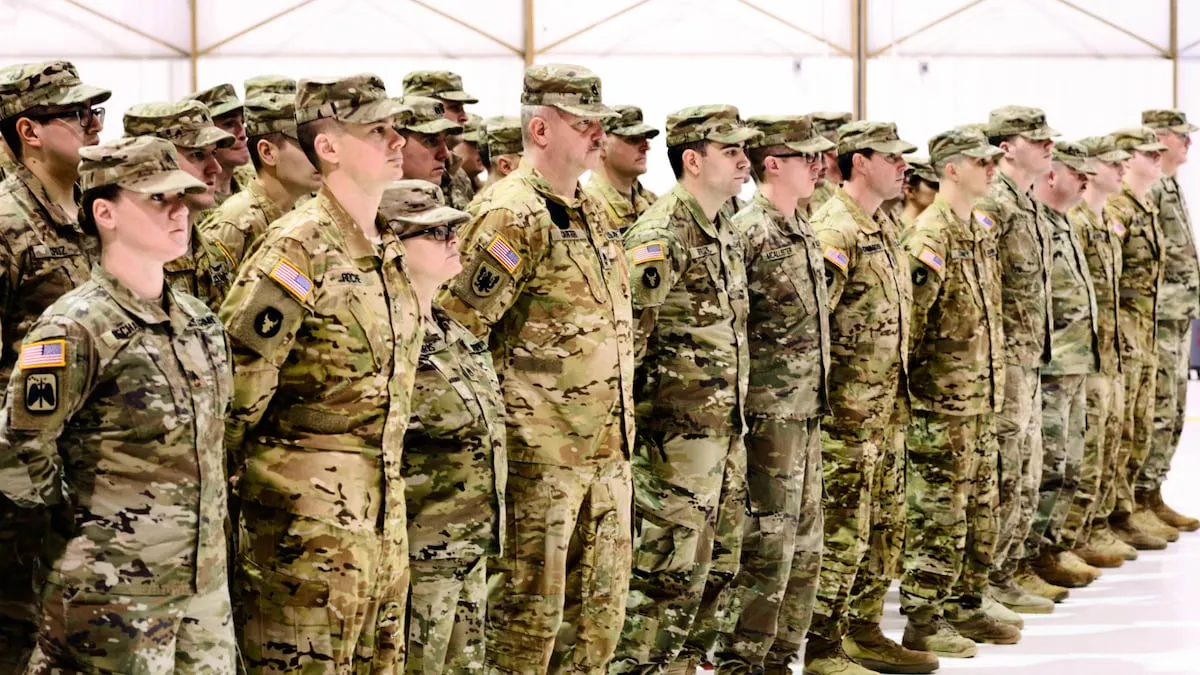
In a significant ruling from a panel of federal appeals court judges, the Oregon National Guard troops can remain under federal control; however, they are currently prohibited from being deployed in Portland. This decision was issued on Wednesday afternoon, when the three-judge panel stayed an order that had barred President Trump from federalizing 200 Oregon National Guard troops and sending them into the city.
It is crucial to note that this ruling does not automatically permit Trump to deploy the troops to Portland. A separate order continues to prevent any federalized National Guard members, whether from Oregon or other states, from being deployed within Oregon's borders. This existing order remains effective, ensuring that the status quo of federalization without deployment persists.
“The effect of granting an administrative stay preserves the status quo in which National Guard members have been federalized but not deployed,” the panel stated in their ruling. This stay serves as a temporary measure while the court prepares to examine more thoroughly whether federalized Oregon National Guard members can be sent into Portland. Oral arguments regarding this matter are scheduled for Thursday at 9 a.m.
Oregon Attorney General Dan Rayfield, a Democrat, commented on the order, emphasizing that it does not alter the current situation on the ground. “Today’s order from the Ninth Circuit doesn’t change anything on the ground,” he stated. “While it keeps the Oregon National Guard under federal status, most importantly, it prevents the President from deploying the guard in Portland. That means no unnecessary federal escalation – and that’s a win for Oregonians who want calm, not conflict in our communities.”
The panel that issued this ruling consists of two judges appointed by Trump and one appointed by former President Bill Clinton. Judge Susan Graber, the Clinton appointee, has a rich history in Oregon, having practiced law in Portland during the 1970s and 1980s, and later serving as presiding judge on the Oregon Court of Appeals and as an associate justice on the Oregon Supreme Court. Judge Ryan D. Nelson, nominated by Trump in 2018, previously served as general counsel for a consumer goods company in Idaho Falls. Judge Bridget Bade, also a Trump nominee in 2019, formerly held the position of U.S. Magistrate Judge for the district of Arizona.
While the recent order does not lead to sweeping changes, it effectively prevents Gov. Tina Kotek from sending Oregon National Guard members home, a move she attempted on Monday. Since last week, 200 National Guard members have been stationed at Camp Rilea, located near Astoria, Oregon. This latest order adds to the complex landscape of judicial rulings that have emerged since Trump's announcement to deploy Oregon National Guard members on September 27.
Following Trump's declaration, attorneys representing the state of Oregon and the city of Portland swiftly filed a lawsuit to block the deployment. On October 4, they successfully obtained an order from U.S. District Judge Karin Immergut, which prohibited Trump from deploying the Oregon National Guard. The appeals court's ruling on Tuesday temporarily stays this order, although the judges clarified that their decision is primarily aimed at maintaining the current state and does not address the merits of the underlying case.
Immergut issued a broader follow-up order on October 5, which temporarily barred the deployment of any federalized National Guard members to Portland after the Trump administration indicated plans to send troops from California and Texas. Central to this legal battle are ongoing protests against immigration enforcement near a U.S. Immigration and Customs Enforcement facility in Portland. The Trump administration has characterized these protests as a violent rebellion, justifying the potential deployment of the National Guard. In contrast, the state of Oregon and the city of Portland argue, with Judge Immergut's agreement, that these protests have been relatively small and manageable by local law enforcement.
As the situation continues to evolve, the legal and civic implications of the court's ruling on the Oregon National Guard will be closely monitored by both state officials and the community.